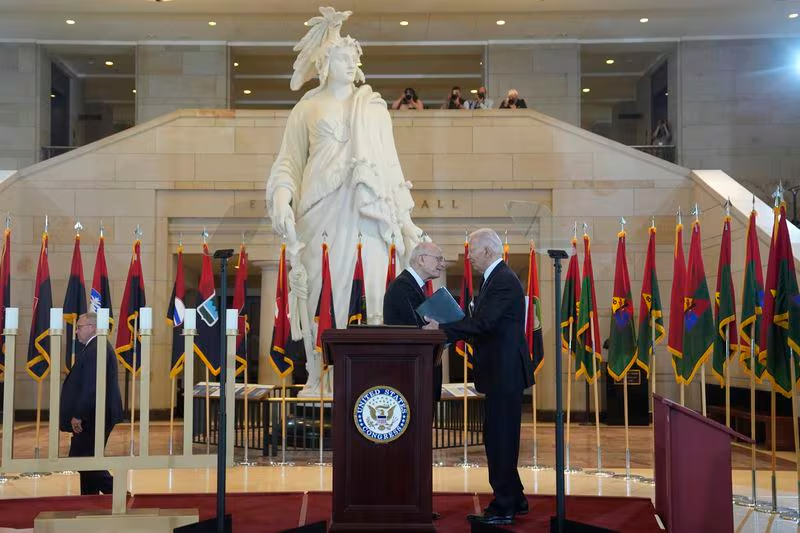Legal proceedings against former President Donald Trump intensify, legal experts argue that he should receive a sentence at least as severe as that of his co-conspirator, citing numerous compelling reasons. This assertion adds another layer of complexity to the high-profile case that has captured national attention.
One prominent legal expert, who has closely followed the case, outlined the rationale behind this perspective. “Given the gravity of the charges and the extent of his involvement, there are numerous reasons why Trump should face a sentence comparable to or even more stringent than that of his co-conspirator,” the expert stated.
The co-conspirator in question, who has already been sentenced, played a significant role in the actions that led to the charges. However, the expert emphasized that Trump’s position as the orchestrator and primary beneficiary of the alleged illegal activities warrants a harsher penalty. “As the leading figure, Trump’s actions had far-reaching implications, and his accountability is paramount,” the expert explained.
Several factors contribute to this argument:
Leadership Role: Trump is viewed as the primary architect of the actions that led to the charges. His leadership position and influence over his co-conspirators amplify his responsibility.
Magnitude of Impact: The alleged crimes had substantial consequences, affecting the integrity of democratic processes and public trust. The expert argued that Trump’s actions, therefore, had a more significant impact than those of his co-conspirator.
Deterrence: Sentencing Trump to a term at least as severe as his co-conspirator is seen as a necessary deterrent. It would signal that no one, regardless of their position, is above the law and that such actions will be met with serious consequences.
Precedent: Establishing a strong precedent is crucial in maintaining the rule of law. The expert pointed out that a lenient sentence could undermine legal standards and embolden similar behavior in the future.
Public Perception: Upholding justice in high-profile cases is vital for public confidence in the legal system. A sentence perceived as fair and proportionate reinforces the notion of equal justice under the law.
The legal community and public are closely watching how the judiciary will navigate these complex considerations. While some argue for leniency based on Trump’s unique position and potential repercussions, others assert that a firm stance is essential to uphold legal principles and deter future misconduct.
In conclusion, the call for Trump to receive a sentence at least as severe as his co-conspirator is grounded in several compelling legal and ethical reasons. As the case progresses, it will be critical to balance the need for accountability, deterrence, and the preservation of public trust in the judicial system.










